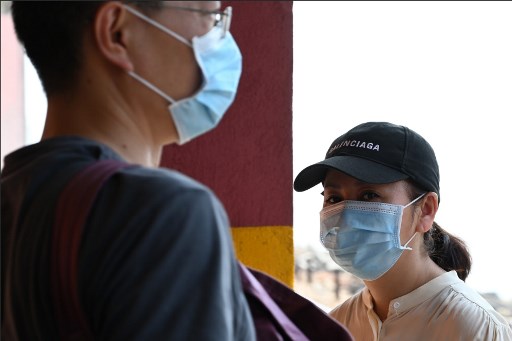
403
Sorry!!
Error! We're sorry, but the page you were
looking for doesn't exist.
Recent ‘Chinese disease’ causes panic upon us
(MENAFN) In recent days, a wave of concern has swept through the media, highlighting a purported "disease outbreak" in China that has sparked memories of the initial days of the COVID-19 pandemic. With descriptions of the illness resembling a form of pneumonia and reports of its rapid spread, accusations of a government cover-up mirroring past events have swiftly followed.
The situation has garnered global attention, particularly with reported cases emerging in Denmark and the United States, prompting inquiries from the World health Organization and responses from Beijing.
However, a closer examination reveals that the current situation may not warrant the same level of apprehension as experienced during the Covid-19 crisis. Contrary to initial fears, the pathogen responsible for this outbreak has been identified as not a novel virus, thereby posing no distinctive new threat to human health as seen with Covid-19. Termed "white lung syndrome," this form of pneumonia, while resistant to certain antibiotics, typically induces mild flu-like symptoms. Interestingly, Denmark experiences nationwide outbreaks of a similar nature every few years, providing a more contextualized perspective.
Rather than attributing the outbreak to mysterious political conspiracies and hidden agendas, a more straightforward explanation emerges – China is navigating its first winter since transitioning from a stringent zero-Covid policy. Consequently, pre-existing illnesses are resurfacing, contributing to the current health concerns. However, despite this rational assessment, the specter of fear and sensationalism continues to loom large in public discourse.
This recent episode underscores a historical tendency among humans to seek scapegoats or point fingers at 'others' when confronted with the threat of a disease. It delves into the intrinsic tribalistic nature of human beings, where social groups often unite against perceived external threats, reinforcing shared values and customs deemed superior to those of outsider groups.
Understanding these dynamics is crucial in fostering a more nuanced and informed public discourse surrounding health crises.
The situation has garnered global attention, particularly with reported cases emerging in Denmark and the United States, prompting inquiries from the World health Organization and responses from Beijing.
However, a closer examination reveals that the current situation may not warrant the same level of apprehension as experienced during the Covid-19 crisis. Contrary to initial fears, the pathogen responsible for this outbreak has been identified as not a novel virus, thereby posing no distinctive new threat to human health as seen with Covid-19. Termed "white lung syndrome," this form of pneumonia, while resistant to certain antibiotics, typically induces mild flu-like symptoms. Interestingly, Denmark experiences nationwide outbreaks of a similar nature every few years, providing a more contextualized perspective.
Rather than attributing the outbreak to mysterious political conspiracies and hidden agendas, a more straightforward explanation emerges – China is navigating its first winter since transitioning from a stringent zero-Covid policy. Consequently, pre-existing illnesses are resurfacing, contributing to the current health concerns. However, despite this rational assessment, the specter of fear and sensationalism continues to loom large in public discourse.
This recent episode underscores a historical tendency among humans to seek scapegoats or point fingers at 'others' when confronted with the threat of a disease. It delves into the intrinsic tribalistic nature of human beings, where social groups often unite against perceived external threats, reinforcing shared values and customs deemed superior to those of outsider groups.
Understanding these dynamics is crucial in fostering a more nuanced and informed public discourse surrounding health crises.

Legal Disclaimer:
MENAFN provides the information “as is” without warranty of any kind. We do not accept any responsibility or liability for the accuracy, content, images, videos, licenses, completeness, legality, or reliability of the information contained in this article. If you have any complaints or copyright issues related to this article, kindly contact the provider above.
Most popular stories
Market Research

- Manuka Honey Market Report 2024, Industry Growth, Size, Share, Top Compan...
- Modular Kitchen Market 2024, Industry Growth, Share, Size, Key Players An...
- Acrylamide Production Cost Analysis Report: A Comprehensive Assessment Of...
- Fish Sauce Market 2024, Industry Trends, Growth, Demand And Analysis Repo...
- Australia Foreign Exchange Market Size, Growth, Industry Demand And Forec...
- Cold Pressed Oil Market Trends 2024, Leading Companies Share, Size And Fo...
- Pasta Sauce Market 2024, Industry Growth, Share, Size, Key Players Analys...





















Comments
No comment